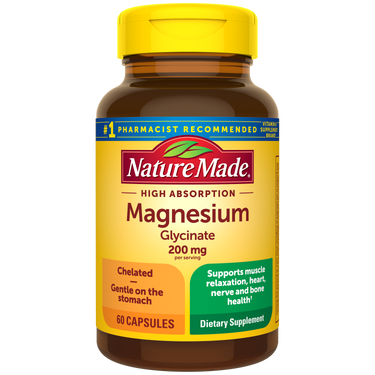Studies Using Nature Made
Pharmavite (the makers of NatureMade), has been a trusted leader in health and wellness with over 50 years of commitment to research, science and innovation. The quality of our products is recognized by the scientific community as our products have been used in over 140 clinical studies. We are a go-to source for nutrition supplement intervention studies, providing product and placebo for clinical trials around the globe. Pharmavite has collaborated with over 55 leading health and science institutions to donate product for over 95 studies, including the recent VITAL study.
From a substantial total list, we are pleased to share links to a few of the most well-known studies that used Nature Made products:
• Determination of coenzyme Q10 content in raw materials and dietary supplements by high-performance liquid chromatography-UV: collaborative study. (Lunetta, Roman; 2008; Ten collaborating labs)
http://www.ncbi.nlm.nih.gov/pubmed/18727527
Key finding: HPLC-UV testing is effective and dependable for CoQ10
• Effects of short-term folic acid and/or riboflavin supplementation on serum folate and plasma total homocysteine concentrations in young Japanese male subjects. (Araki, et al. 2006; Japan Women’s University)
http://www.nature.com/ejcn/journal/v60/n5/abs/1602351a.html
Key finding: Serum folate concentrations increased in folic acid groups
• Premenopausal overweight women do not lose bone during moderate weight loss with adequate or higher calcium intake. (Riedt, et al; 2006; Rutgers University)
http://www.ncbi.nlm.nih.gov/pubmed/17413095
Key finding: Bone mass was maintained with calcium supplementation
• Faster plasma vitamin E disappearance in smokers is normalized by vitamin C supplementation. (Bruno, et al. 2005; Linus Pauling Institute at Oregon State University)
http://www.ncbi.nlm.nih.gov/pubmed/16458200
Key finding: Vitamin C recycles Vitamin E
• S-Adenosyl-L-Methionine (SAMe) as an Adjunct for Resistant Major Depressive Disorder: An Open Trial Following Partial or Nonresponse to Selective Serotonin Reuptake Inhibitors or Venlafaxine. (Alpert, et al. 2004)
http://www.ncbi.nlm.nih.gov/pubmed/15538131
Key finding: Potential of SAM-e as treatment approach (small sample size)
• Vitamin E treatment of nonalcoholic steatohepatitis (NASH) in children: A pilot study. (J. Lavine. 2000)
http://www.jpeds.com/article/S0022-3476(00)05040-X/abstract
Key finding: Vitamin E potential treatment for NASH
• Faster plasma vitamin E disappearance in smokers is normalized by vitamin C supplementation (Bruno, Richard S., et al; 2006; Oregon State University)
https://pubmed.ncbi.nlm.nih.gov/16458200/
Key finding: Vitamin C supplementation decreased plasma vitamin E disappearance in smokers
• Vitamin C treatment reduces elevated C-reactive protein. (Block, Gladys, et al.; 2010; University of California, Berkeley School of Public Health)
https://www.ncbi.nlm.nih.gov/pmc/articles/PMC2631578/
Key finding: Vitamin C supplementation reduces an inflammatory biomarker that predicts risk of cardiovascular disease
• Pioglitazone, vitamin E, or placebo for nonalcoholic steatohepatitis. (Sanyal, Arun J., et al.; 2010; various universities in the United States)
https://www.ncbi.nlm.nih.gov/pmc/articles/PMC2928471/
Key finding: Vitamin E is effective
• A Phase II Randomized, Controlled Trial of S-Adenosylmethionine in Reducing Serum α-Fetoprotein in Patients with Hepatitis C Cirrhosis and Elevated AFP. (Morgan, Timothy R., et al; 2015; University of California, Irvine)
https://pubmed.ncbi.nlm.nih.gov/26130251/
Key finding: S-adenosylmethionine does not significantly improve AFP
• Effect of High-Dose vs Standard-Dose Vitamin D3 Supplementation on Progression-Free Survival Among Patients With Advanced or Metastatic Colorectal Cancer: The SUNSHINE Randomized Clinical Trial. (Ng, Kimmie, et al.; 2019; various institutes in the United States)
https://europepmc.org/article/med/30964527
Key finding: High-dose vitamin D3 was the most promising treatment
• Vitamin D and marine omega 3 fatty acid supplementation and incident autoimmune disease: VITAL randomized controlled trial. (Hahn, Jill, et al.; 2021; Brigham and Women's Hospital)
https://www.bmj.com/content/376/bmj-2021-066452
Key finding: Vitamin D supplementation for five years reduced autoimmune disease by 22% while marine omega 3 fatty acid supplementation for five years reduced autoimmune disease by 15%


 Beauty
Beauty
 Bone
Bone
.svg?v=1708553623743) Brain
Brain
 Digestion
Digestion
 Energy
Energy
 Eye Health
Eye Health
 General Wellness
General Wellness
 Heart
Heart
 Immune Health
Immune Health
 Joints
Joints
 Kids
Kids
 Men's Health
Men's Health
 Mood
Mood
 Sleep
Sleep
 Stress
Stress
 Women's Health
Women's Health














